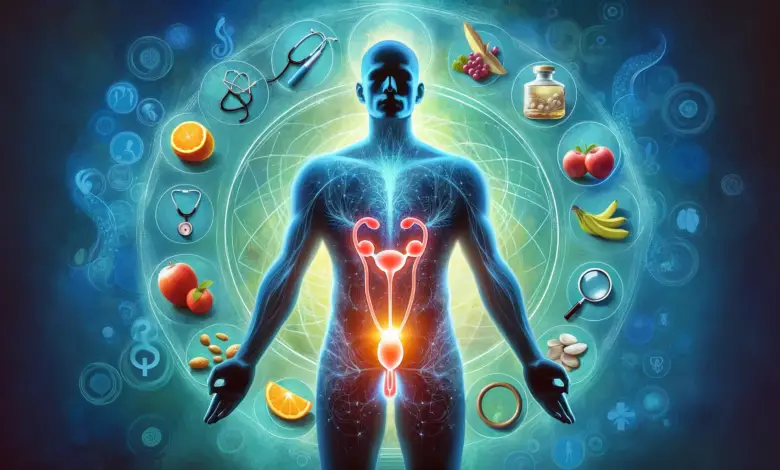Prostate Health: Prevention and Early Detection

Prostate health is a topic that often goes unnoticed until problems arise. However, taking proactive steps to prevent and detect issues early can have a significant impact on overall well-being. In this article, we will explore various aspects of prostate health, including prevention strategies and the importance of early detection.
Understanding the Prostate
Before delving into prevention and early detection, it is essential to understand the prostate itself. The prostate is a small gland located below the bladder in men. Its primary function is to produce seminal fluid, which nourishes and transports sperm. As men age, the prostate can undergo changes that may lead to health issues.
Prevention Strategies
1. Maintain a Healthy Diet:
A healthy diet plays a crucial role in prostate health. Include a variety of fruits, vegetables, whole grains, and lean proteins in your meals. Foods rich in antioxidants, such as tomatoes, berries, and green tea, can be particularly beneficial.
2. Regular Exercise:
Engaging in regular physical activity not only helps maintain a healthy weight but also promotes prostate health. Aim for at least 30 minutes of moderate exercise most days of the week. Activities like brisk walking, swimming, or cycling are excellent choices.
3. Limit Alcohol Consumption:
Excessive alcohol consumption can have a negative impact on prostate health. If you choose to drink, do so in moderation. The recommended limit is up to two drinks per day for men.
4. Quit Smoking:
Smoking is linked to an increased risk of prostate cancer. Quitting smoking not only reduces this risk but also improves overall health. Seek support from healthcare professionals or support groups to help you quit successfully.
Early Detection Methods
1. Regular Check-ups:
Scheduling routine check-ups with your healthcare provider is crucial for early detection. They can perform a digital rectal exam (DRE) to check for any abnormalities in the prostate. Additionally, they may recommend a prostate-specific antigen (PSA) blood test to measure the levels of a protein produced by the prostate.
2. Know the Signs and Symptoms:
Being aware of the signs and symptoms of prostate problems can help with early detection. These may include frequent urination, difficulty starting or stopping urination, weak urine flow, blood in the urine or semen, or pain or discomfort in the pelvic area.
3. Family History:
If you have a family history of prostate problems or prostate cancer, it is essential to inform your healthcare provider. They may recommend earlier or more frequent screenings to monitor your prostate health.
4. Stay Informed:
Keep yourself updated on the latest research and guidelines regarding prostate health. This knowledge can empower you to make informed decisions about your health and seek appropriate medical attention when necessary.
When to Seek Medical Attention
If you experience any concerning symptoms or have a family history of prostate problems, it is essential to consult a healthcare professional. They can provide a proper diagnosis and recommend appropriate treatment options if necessary.
Conclusion
Prostate health is a vital aspect of overall well-being for men. By implementing preventive measures and staying vigilant about early detection, individuals can take control of their prostate health and potentially prevent serious complications. Remember to consult with healthcare professionals for personalized advice and guidance.
Disclaimer: This article is for informational purposes only and should not replace professional medical advice. Always consult with a qualified healthcare provider regarding any health concerns or questions.




